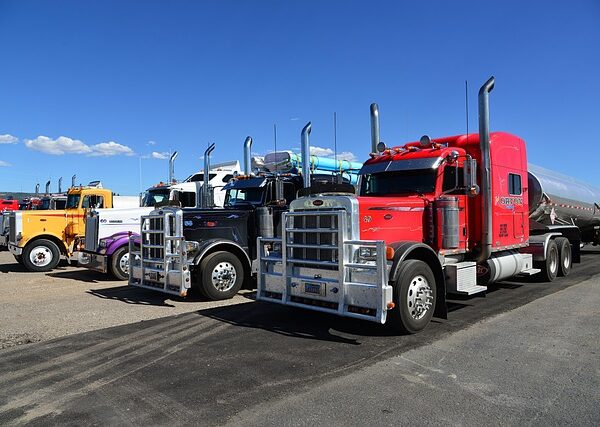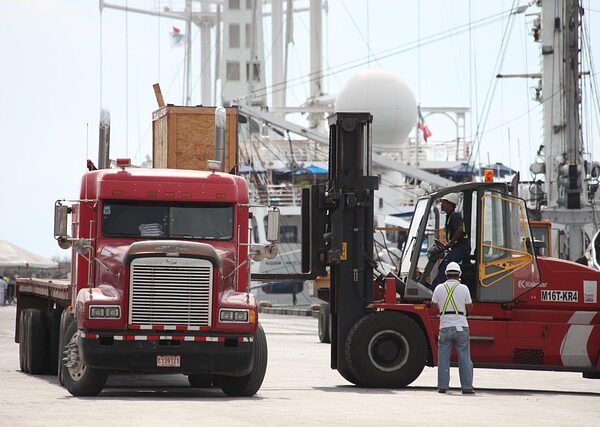Suspension Mods: Revolutionizing Transport and Urban Mobility
Introduction
Welcome to an in-depth exploration of the world of Suspension Mods, a groundbreaking concept transforming urban transportation and mobility. In this article, we will navigate through the various facets of this innovative technology, from its technical foundations to its global impact and future potential. Suspension Mods represent a significant advancement in vehicle design, offering enhanced passenger comfort, improved safety, and increased adaptability to diverse road conditions. As cities face growing traffic congestion and demand for sustainable transportation solutions, Suspension Mods emerge as a game-changer, promising efficient, eco-friendly, and resilient urban mobility.
Understanding Suspension Mods: Unveiling the Concept
Definition:
Suspension Mods, or advanced suspension systems, are sophisticated mechanical and electronic components designed to optimize vehicle dynamics and passenger experience. These mods go beyond traditional suspension setups by incorporating adaptive technologies that can dynamically adjust to various road surfaces, driving conditions, and individual preferences.
Core Components:
- Sensor Technology: Suspension Mods rely on a network of sensors to gather real-time data on road conditions, vehicle speed, and body movement. These sensors include accelerometers, gyroscopes, and force sensors.
- Electronic Control Units (ECUs): Powerful computers that process sensor data and command the suspension components, ECUs are the brain of the system. They execute control algorithms to adjust spring rates, damping, and ride height.
- Active Suspension Components: These include adaptive dampers, electromechanical actuators, and variable stiffness springs. These components can alter their characteristics based on input from the ECUs.
- User Interface: Modern suspension mods often come with mobile apps or in-cabin displays that allow drivers to customize settings, monitor performance, and access diagnostic information.
Historical Context:
The concept of adaptive suspension is not new, with early attempts dating back to the 1970s. However, recent advancements in electronics, sensor technology, and computing power have propelled Suspension Mods into the spotlight. The rise of electric vehicles (EVs) has also fueled their development, as EV manufacturers seek to enhance range and comfort while navigating uneven terrain.
Significance:
Suspension Mods offer several key advantages:
- Improved Safety: By adaptively adjusting to road conditions, these mods can reduce the risk of accidents caused by sudden jolts or poor road surfaces.
- Enhanced Comfort: Passengers experience smoother rides, minimizing fatigue during long journeys.
- Increased Control: Drivers gain better control over their vehicles, especially in challenging terrain or adverse weather conditions.
- Customization: Users can tailor suspension settings to match driving styles and preferences, optimizing performance for various scenarios.
Global Impact and Trends
International Influence:
Suspension Mods have gained a global following, with significant adoption rates in regions known for their diverse road networks and harsh climates. Countries like Canada, Russia, and parts of Europe have led the way in embracing this technology due to their extensive winter conditions and varied terrain.
Regional Trends:
- North America: The US and Canada have witnessed a surge in Suspension Mod adoption, particularly in high-end vehicles and luxury car segments. Companies like Ford and General Motors are integrating advanced suspension systems into their models.
- Europe: European automakers are at the forefront of developing and refining Suspension Mods, with Germany and Sweden leading the way in research and development.
- Asia Pacific: Japan and South Korea have shown a keen interest in this technology for their compact vehicles, focusing on lightweight materials and efficient control systems.
- Emerging Markets: Brazil and India are exploring Suspension Mods as a means to improve local vehicle models, catering to growing middle-class populations with evolving transportation needs.
Economic Considerations: Market Dynamics and Investments
Market Size and Growth:
The global market for advanced suspension systems is projected to reach USD 12.5 billion by 2027, exhibiting a compound annual growth rate (CAGR) of 8.2% from 2022 to 2027 (Source: Grand View Research). This growth is driven by the increasing demand for luxury and premium vehicles equipped with advanced safety features and enhanced ride quality.
Investment Patterns:
- Automotive Manufacturers: Major automakers are investing heavily in research and development, partnering with tech companies to integrate Suspension Mods into their vehicle architectures.
- Tech Startups: Many startups are focusing on creating modular suspension systems that can be adapted to various vehicle types, offering cost-effective solutions.
- Government Initiatives: Some governments provide incentives and grants for the development and adoption of advanced transportation technologies, including Suspension Mods.
Economic Impact:
- Job Creation: The rising demand for Suspension Mods stimulates job growth in R&D, manufacturing, and after-sales service sectors.
- Trade Balances: As countries develop their own suspension technology capabilities, it can improve trade balances by reducing reliance on imports of advanced vehicle components.
- Tourism and Mobility: Improved urban mobility due to Suspension Mods can enhance tourism, particularly in regions known for their scenic landscapes but challenging road conditions.
Technological Advancements: Driving Innovation Forward
Key Innovations:
- Mechatronic Systems: The integration of mechanical, electronic, and hydraulic components has enabled more precise control and faster response times.
- Wireless Communication: Bluetooth and Wi-Fi connectivity allow for remote monitoring and software updates, enhancing system performance over time.
- Machine Learning Algorithms: AI-powered control algorithms can predict road conditions and make real-time adjustments, improving safety and comfort.
- Material Science: Advancements in lightweight materials like carbon fiber composites reduce vehicle mass, allowing for more efficient suspension tuning.
Impact on Performance:
- Improved Ride Quality: Modern suspension mods provide a smoother, more controlled ride, reducing fatigue during long drives.
- Enhanced Safety: Active suspension can actively counter roll motions and minimize the impact of sudden road changes, preventing accidents.
- Increased Efficiency: By optimizing vehicle dynamics, Suspension Mods contribute to improved fuel efficiency, particularly in electric vehicles.
Future Potential:
- Autonomous Vehicles: Suspension Mods will play a crucial role in the development of self-driving cars, ensuring safe and comfortable journeys even in varying road conditions.
- Connected Cars: Integration with vehicle-to-vehicle (V2V) and vehicle-to-infrastructure (V2I) communication networks can enhance safety and efficiency further.
- Personalized Experience: Future systems may offer highly customized profiles for individual drivers, adapting to their unique preferences and driving behaviors.
Policy and Regulation: Navigating the Legal Landscape
Key Policies:
- Safety Standards: Governments worldwide have implemented strict safety regulations for vehicles equipped with advanced suspension systems. These standards ensure that manufacturers meet specific criteria for performance and reliability.
- Emissions and Efficiency: As electric vehicles gain popularity, regulatory bodies are focusing on improving their overall efficiency, including the role of Suspension Mods in achieving better range and performance.
- Data Privacy: With connected car technology, data privacy regulations must address how vehicle systems collect, store, and share user data, ensuring driver consent and security.
Legislative Frameworks:
- Vehicle Homologation: Manufacturers must obtain certification for their suspension mods from relevant authorities before selling or fitting them to vehicles.
- Warranty and Liability: Policies are in place to protect consumers, ensuring that manufacturers stand by their products and take responsibility for any defects or issues arising from the use of Suspension Mods.
- Environmental Considerations: Regulations encourage the development of eco-friendly suspension technologies, promoting sustainability in the automotive industry.
Challenges and Criticisms: Overcoming Obstacles
Main Issues:
- Cost: Suspension Mods are currently more expensive than traditional setups, making them less accessible to budget-conscious consumers. However, as technology matures and production scales up, costs are expected to decline.
- Complexity: The intricate nature of these systems requires specialized knowledge for installation and maintenance, limiting their availability at mainstream service centers.
- Regulation: While regulations ensure safety, they can also be a barrier to entry for manufacturers, especially smaller startups. Balancing innovation with regulation is crucial.
Proposed Solutions:
- Standardization: Industry collaboration can lead to standardized components and protocols, reducing costs and increasing accessibility.
- Training Programs: Governments and industry bodies can invest in training programs to educate mechanics and service technicians on Suspension Mods, fostering a skilled workforce.
- Incentives for Manufacturers: Tax breaks and subsidies can encourage the adoption of advanced technologies, spurring innovation while ensuring safety standards are met.
Case Studies: Real-World Success Stories
Case Study 1: Tesla Model S with Advanced Air Suspension
Tesla’s flagship sedan, the Model S, features an advanced air suspension system that delivers exceptional ride quality and handling. This system uses electronic controls to adjust spring rates and damping in real time, providing a smooth ride at high speeds and maintaining stability during cornering. The app-based control interface allows drivers to select from various driving modes, catering to different road conditions and preferences.
Key Takeaways:
- Customization: Tesla’s approach offers a personalized driving experience, appealing to tech-savvy users.
- Integration: Seamless integration with the vehicle’s electric powertrain enhances overall performance.
Case Study 2: Volvo’s Pilot Active Suspension (PAS)
Volvo, known for its focus on safety, introduced the Pilot Active Suspension in its XC90 SUV. PAS uses sensors to detect road conditions and adjusts the suspension accordingly, providing a smooth ride and improved control. This system also includes a ‘Comfort’ mode for everyday driving and a ‘Performance’ setting for enhanced handling.
Lessons Learned:
- Safety First: Volvo’s approach prioritizes safety as the core benefit of Suspension Mods, appealing to cautious drivers.
- Mode Selection: Offering various driving modes caters to different user needs and enhances vehicle versatility.
Case Study 3: Mercedes-Benz E-Class with Adaptive Air Suspension
Mercedes-Benz has long been a pioneer in luxury vehicles, and its E-Class offers an advanced air suspension system. This setup includes dynamic curve control, which adjusts body roll during cornering for improved stability and handling. The system also provides height adjustment, allowing drivers to raise the vehicle for off-road adventures or lower it for better aerodynamics.
Insights:
- Customizable Ride Height: The ability to adjust ride height adds versatility, appealing to a wide range of drivers with diverse preferences.
- Luxury Experience: Mercedes’ execution enhances the overall luxury experience, setting a benchmark in the premium car segment.
Future Prospects: Charting the Course Ahead
Emerging Trends:
- Hybrid Systems: Combining traditional suspension with advanced electric components will lead to hybrid suspension systems, offering the best of both worlds—cost-effectiveness and performance.
- Modular Design: Manufacturers are expected to develop modular suspension platforms that can be adapted for various vehicle types and sizes, reducing development costs.
- Over-the-Air Updates: Remote software updates will enable continuous improvement and customization, keeping vehicles up-to-date with the latest technology.
Growth Areas:
- Electric Vehicles: As EV adoption accelerates, Suspension Mods will play a pivotal role in enhancing their range, comfort, and performance.
- Autonomous Cars: Self-driving vehicles will require advanced suspension systems to ensure safe and smooth rides, even in unpredictable conditions.
- Shared Mobility: Ride-sharing and car-sharing services will benefit from Suspension Mods, offering passengers a more comfortable and efficient experience.
Strategic Considerations:
- Partnerships: Collaborating with tech companies and startups can help automakers stay ahead of the curve, leveraging innovative solutions.
- Data Analytics: Utilizing vehicle data to improve suspension performance and personalize user experiences will be crucial for future success.
- Sustainability: Developing eco-friendly materials and energy-efficient suspension systems will appeal to environmentally conscious consumers.
Conclusion: Revolutionizing Urban Mobility
In conclusion, Suspension Mods represent a significant leap forward in vehicle technology, offering enhanced safety, comfort, and control. As urban populations grow and transportation demands evolve, these advanced suspension systems will play a pivotal role in shaping the future of mobility. With global adoption increasing and technological advancements continuing apace, Suspension Mods are poised to revolutionize not only individual driving experiences but also the overall efficiency and sustainability of urban transport networks.
FAQ Section: Answering Common Queries
Q: How do Suspension Mods improve safety?
A: Suspension Mods use sensors and advanced control algorithms to dynamically adjust to road conditions, reducing the risk of accidents caused by sudden jolts or poor road surfaces. They can actively counter roll motions and minimize the impact of uneven terrain, enhancing vehicle stability.
Q: Are Suspension Mods only for luxury vehicles?
A: While initially more common in premium vehicles, suspension mods are becoming increasingly accessible across various segments. Many manufacturers offer them as optional extras, and with growing demand, we can expect to see more affordable options in the future.
Q: Can I install Suspension Mods myself?
A: While some basic adjustments and tune-ups may be doable for enthusiasts, most advanced suspension systems require professional installation due to their intricate nature and safety implications. It’s essential to consult with experts or authorized service centers.
Q: How do Suspension Mods impact fuel efficiency?
A: By optimizing vehicle dynamics, including improved ride quality and reduced body roll, Suspension Mods can contribute to better fuel efficiency, especially in electric vehicles. Efficient suspension systems allow for more precise energy distribution, leading to reduced energy wastage.
Q: What are the environmental benefits of Suspension Mods?
A: As mentioned earlier, advanced suspension technologies, particularly in EVs, can enhance range and performance, reducing the need for frequent charging. This efficiency contributes to lower overall carbon emissions, making them a sustainable choice for eco-conscious consumers.
Looking to register your car in California? This comprehensive guide walks you through the process, ensuring a smooth transition. From understanding vital requirements to gathering essential documents…….
Looking to register your car in California? This comprehensive guide walks you through the entire process, ensuring a smooth experience. From understanding state requirements to gathering essential do…….
Looking to register your car in California? This comprehensive guide walks you through the process step-by-step. First, understand the eligibility requirements for car registration, ensuring your vehi…….
Looking to register your car in California? This comprehensive guide walks you through the process, ensuring a smooth experience. From understanding vital registration requirements and gathering essen…….
Looking to register your car in California? This comprehensive guide breaks down the process step-by-step, from understanding key requirements to securing your unique vehicle identification number (VI…….
Looking to register your car in California? This comprehensive guide walks you through the entire process, ensuring a smooth experience. From understanding key requirements for car registration in Cal…….
Looking to register your car in California? This comprehensive guide walks you through every step, from understanding crucial requirements to securing your license plate. We’ll detail the necessary do…….
Looking to register your car in California? This guide breaks down the process step-by-step, ensuring a smooth transition. From understanding vital requirements like the Vehicle Identification Number…….
Looking to register your car in California? This comprehensive guide breaks down the process step-by-step. From understanding key requirements to gathering essential documents, you’ll learn what’s nee…….
Looking to register your car in California? It’s a straightforward process, but understanding the requirements is key. This guide walks you through every step, from gathering essential documents for V…….









